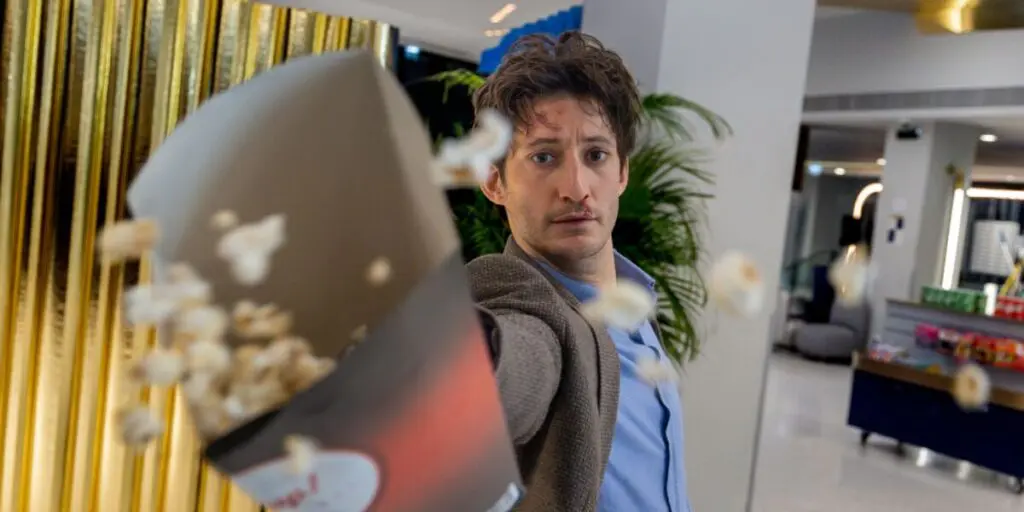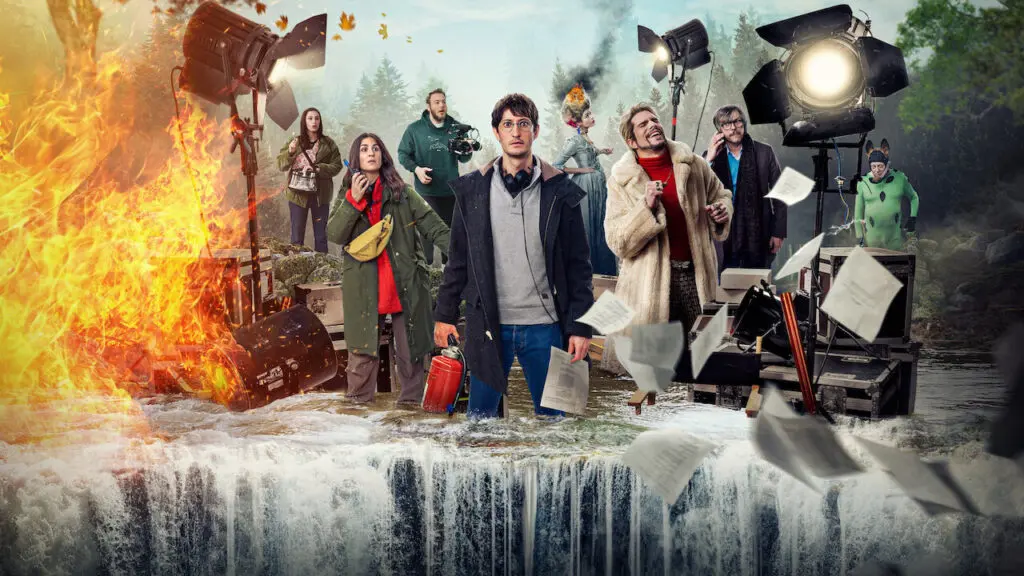Summary
Fiasco is reminiscent of some great works in the mockumentary format, and while it isn’t quite on the same level as the classics, it has a puerile energy that’s easy to like.
The mockumentary is a fine thing when done right. This Is Spinal Tap and The Office aren’t just classics of the genre but bona fide classics in general, and they operate in a very specific and odd little way. The same stories wouldn’t work in another format, and it’s this kind of niche appeal that Netflix attempts to conjure with Fiasco, a French farce about an aspiring auteur trying to make a movie and failing at every turn.
Allow me to temper your expectations a little, since Fiasco isn’t The Office or Spinal Tap. But it’s something quite close to them, evocative of the same style and uniquely effective conceit that people don’t attempt very often because it’s so hard to pull off.
That previously mentioned wannabe auteur is Raphael (Pierre Niney), a directionless thirtysomething who is trying to turn his screenplay about his heroic late grandmother into a hit. He manages to secure funding and a big-name star and, in the first week of filming, loses both.
Raphael is generally inept, but his failures are accelerated by the actions of a saboteur. Raphael’s on-set speeches are leaked, stunts go wrong, and he whips up endless PR storms. His dream becomes a nightmare and he’s forced to reckon with who he is and how much he can take.
Fiasco is aptly titled, since it’s a proudly silly show – sillier, it must be said, than a lot of the more straight-faced efforts in the genre. There’s a whiff of other mockumentaries and backstage farces pulling back the curtain of the movie or TV industries, but it’s hard to point at a single influence that Fiasco is most reminiscent of.

Fiasco (via Netflix)
But you’ll recognize the constituent parts. You’ll probably feel right at home with some of them, which will likely remind you of other shows you’ve seen and probably enjoyed along the same lines. Fiasco can seem off-putting on paper, being a meta skewering of French cinema, but it’s much more broadly accessible than that description suggests.
The smart play is poking fun at the documentary concept more so than the industry it’s set within. Sure, there are jokes about cinema and the kind of people it attracts, many of whom are absurd, but they’re gags within a more generally relatable framework. Everyone, after all, has seen a documentary at some point.
The downside is that the lack of industry-centric humor makes Fiasco feel a bit toothless as a satirization, offering little insight into the world of filmmaking beyond obvious cliches like method actors being annoying and bottom lines trumping any notions of taste and decency.
But the energy of the whole thing is difficult to fault. The ensemble’s great, and more importantly, having what is quite clearly a great time. There’s something contagious about that, and smart, too. Fiasco is quite clearly calibrated for the global audience that Netflix provides, and doesn’t risk alienating viewers by being too clever and insular for its own good.
Will it be a hit? I have no idea. It’s impossible to tell what will take off these days, but if nothing else Fiasco has a good go of things. I’m always happy to be reminded of oft-neglected genres that can yield fantastic experiences if they’re handled well, and the mockumentary is a gift that keeps on giving in the right hands. Your mileage may vary, but if you were worried that Fiasco would be a little too full of itself to enjoy, you shouldn’t. And that ought to count for something.
I also broke down the ending of Fiasco in detail if you’re interested. Let us know your thoughts on the series overall in the comments below.
RELATED:




